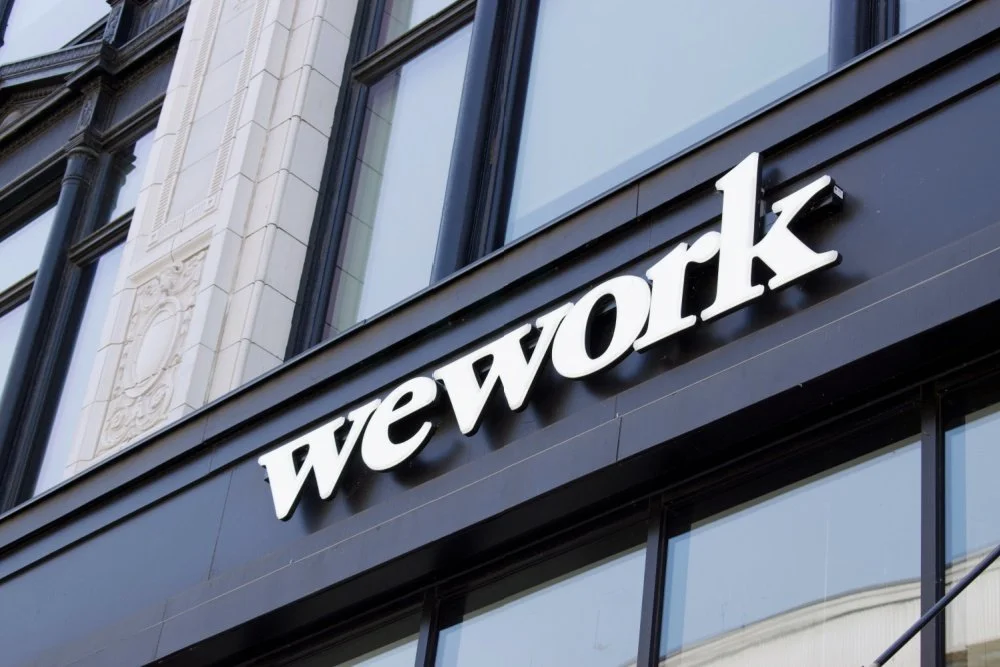The Audacity of TED: New Platform is Moving Big Money, But Does it Get Social Change Right?
/eyeretina/shutterstock
In TED Talks, problems are the dragons that we, as heroes, must slay, and ideas are our most powerful weapons. As the lecture series has surged in popularity, that mix of earnestness, swagger and technological optimism has inspired legions of fans—and its share of critics.
Now, TED is taking its “ideas worth spreading” mission and its massive platform and turning it into a vehicle for high-dollar philanthropy, in a new venture called The Audacious Project.
Judging from the first round of grantees, it’s showing a lot of potential to spotlight important causes for huge bursts of funding—more than $400 million in the first round so far. At the same time, it's reinforcing some common, worrisome attitudes in modern philanthropy—shoehorning social change into the realm of entrepreneurship, where big ideas and individual visionaries are celebrated above all.
The initiative is the latest example of the “big bets” school of philanthropy, and it’s looking to channel both established funders and deep pools of untapped tech wealth toward some of the world’s biggest problems. It will put out an annual open call to potential grantees, then with a team of advisors, whittle it down to a small number to be funded, in this year’s case five organizations. Chosen projects are presented in private to a set of big donors, then TED puts them on stage and encourages anyone else to get on board.
The nonprofit actually started doing something along these lines back in 2005 with the TED Prize, but this new initiative is far bigger in scope, pooling money and guidance from the Gates, Skoll, MacArthur and Dalio Foundations, to name a few. So what does philanthropy look like when it takes the TED stage, hands-free mic and all?
"An IPO for Nonprofits"
The initiative seems to be fueled by two major principles. The first is that nonprofit fundraising is too difficult, and people working for social change are held back because they have to spend too much time asking individual donors for money. This part I can get behind.
While The Audacious Project (let’s call it TAP) is very much a TED project in style and substance, there’s another major influence at work here, and that’s TAP partner and philanthropic consultant Bridgespan. In recent years, the advisor has been a major proponent of donors taking more big bets, or devoting larger dollar amounts to accomplish social change.
There’s been some debate over the effectiveness of this style of big bet, or moonshot philanthropy, a practice most dramatically exemplified by MacArthur’s $100 million grant competition. Hewlett Foundation president Larry Kramer is among those who've expressed skepticism about this approach, writing an article last year bluntly titled: "Against Big Bets."
What “big bet” actually means, however, is itself up for debate. We’ll get into some common traits of the big-bet concept that I find problematic later, but on its most basic level, we’re really just talking about moving larger dollar amounts (Bridgespan says $10 million or more) to a major problem.
Related:
- No More Excuses: Has the MacArthur Foundation Paved the Way for a New Era of "Big Bets?"
- Hey, Billionaire Donors: It’s Time to Pick up the Pace of Your Giving
- Is Making "Big Bets" for Social Change Really So Hard?
- The Perils of All These Prizes
In the sense that it’s moving money to important causes, TAP is an impressive program. As I’ve pointed out before, the strengths of these high-profile philanthropic challenges include their ability to open up access to big philanthropy, and to shine a light on particular problems.
Case in point is TAP grantee The Bail Project. Honestly, I never would have anticipated that the money bail system would be one of the first five issues selected. It’s part of an effort happening in cities across the country to stop the incarceration of people because they don’t have money to post bail. While criminal justice reform, particularly on the system's "front end," is a rising concern in philanthropy, dismantling an unjust bail system is still a pretty edgy niche. The idea that millions of dollars will be headed that way is very cool.
Other selected issues include climate change, marine research, disease and public health. These are precisely the kinds of problems worthy of a “nonprofit IPO,” especially one engaging tech donors who have money to burn and not much experience in the nonprofit world. A new platform for pooling a lot of money behind these issues is welcome.
Social Change Is Not Silicon Valley
The second key principle behind TAP is also where it starts to lose me—the idea that the key to solving global problems is entrepreneurs who dream big. This follows a stubborn thread in modern philanthropy—that in order to make progress on social issues, nonprofits need to be more like startups in the private sector. They need to be disruptive, innovative, or as TAP puts it, “change the way we change the world.”
“Large-scale change depends to a huge degree on people with a special mindset: entrepreneurs,” says TED’s Chris Anderson in an introductory blog post (although the winners are all well-established nonprofits). The messaging is loaded with buzzwords—the “power of the global economy,” achieving “lasting change at scale,” ideas that are “bold and truly actionable,” and have a “viable path to execution.”
It’s a projection of social change work through the filter of Shark Tank and TechCrunch Disrupt, manifesting mainly as a fixation on ideas, and on individual visionaries with specific projects.
Official submission criteria include having a big idea that will “inspire gasps and goosebumps in a short TED Talk.” That breathless celebration of ideas has drawn a backlash to TED Talks themselves, as many of the ideas simply fade away, and some turn out to be seriously flawed (power poses and Theranos, for example). While TAP has a vetting process, the emphasis on bold ideas can be problematic in the context of social change work. As the Gates Grand Challenges have encountered through their own stalled implementation, the problem is rarely a shortage of imagination or ideas.
Too much focus on ideas naturally leads to an emphasis on individual organizations or people carrying out projects, often with an excess of enthusiasm about the extent to which they’ll solve the problem, a pitfall of big-bet philanthropy. In most of these causes, making real headway requires a broad mix of work happening over very long periods of time.
As we so often report, smart, veteran funders working in a range of areas like education, public health and workforce development have increasingly swung behind collective impact strategies that involve multiple stakeholders working in a concerted fashion. Many of these funders have learned the hard way that you can't change systems without bringing everyone to the table. Even New Profit, one of the earliest funding intermediaries backing social entrepreneurs, has shifted its thinking in recent years. "No single organization can solve the complex problems that we are facing as a country," it says. "To break through, we need to bring together coalitions of organizations and people that can address these problems at the scale they exist."
I’d be more compelled by a big-bet program that pooled donors behind a suite of organizations all working on one tough problem in order to build the kind of power that might take on root causes over the long haul. There’s nothing in TAP's rules that prevents that kind of collaborative approach. But the tone and structure of the project skews against it, instead emphasizing the need for that “jaw-dropping” five-minute pitch.
You might argue that this is merely an aesthetic complaint about the style of TED and The Audacious Project. But I worry that this approach reinforces a narrative about good philanthropy that overlooks the hundreds of nonprofits operating tirelessly out of the spotlight, making up the ecosystem of actors responsible for true lasting change.
Larry Kramer put this well in his critique last year of big-bet philanthropy:
Social problems are bred and live inside obdurate systems of clashing interests; both causes and solutions alike depend on people, with all the unpredictability and confounding behavior they entail. Progress is slow, not from lack of imagination or willingness to take chances or to invest enough money, but because the problems are just plain hard.
I do believe efforts to move greater sums of money to these problems are important, and I want to be clear that these grantees do important work, just as many of the future winners no doubt will. After all, there are a lot of good TED Talks. People doing important work are often capable of putting on the razzle-dazzle and giving an audience goosebumps.
But real social change is not always driven by those people, by entrepreneurs. The true test of TAP and big-bet vehicles like them is whether they can mobilize huge funds to support, not just the dazzlers, but the unsexy, un-TED Talk-worthy work of making the world a better place.







































